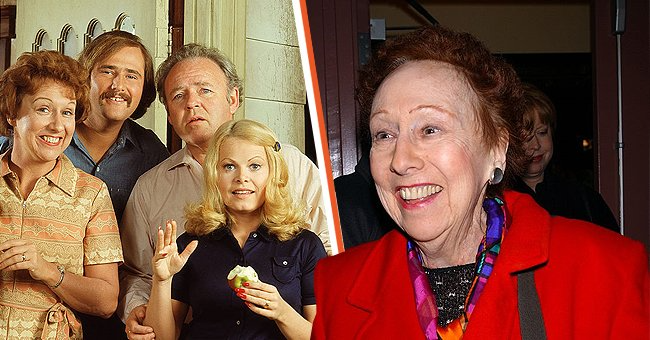
Discover why Jean Stapleton disliked the role of Edith Bunker, how she resisted typecasting, and why she chose not to remarry after losing her husband, embracing a career on her own terms.
Why Jean Stapleton Grew Tired of Playing Edith and Never Remarried After Her Husband’s Death
Jean Stapleton became a beloved household name as Edith Bunker in All in the Family, but the actress was far from content with remaining in that character forever. She made deliberate choices to preserve her identity and never remarry after losing her husband in 1983.
Feeling Typecast as Edith
Stapleton clearly enjoyed playing Edith—she earned multiple Emmys and Golden Globes—but she never wanted the role to consume her career. Feeling that Edith was overly submissive and risked becoming a real-life stereotype, she chose to step away while continuing to work on diverse roles. She emphasized repeatedly that she wasn’t a “leading lady” type and preferred rich character roles that allowed her creativity to flourish.
Over time, she grew uncomfortable with the show leaning more into Edith’s serious and melodramatic storylines, longing instead for the comedic energy that initially defined the character. By the end of All in the Family, and into the spin-off Archie Bunker’s Place, she deliberately reduced her appearances and declined to reprise the role further.
Life Beyond Edith—and Love Lost
Stapleton was married to director-producer William Putch from 1957 until his sudden death from a heart attack in 1983. Known for being supportive of Stapleton’s independence and passion for varied work, Putch was described as open-minded and progressive in their marriage. After his passing, Stapleton never remarried. She had already built a fulfilling career and remained committed to her own creative journey, choosing roles that reflected her versatility rather than expectation.
Preserving Her Identity and Legacy
Jean Stapleton refused to be defined by one character. She resisted speaking in Edith’s high-pitched voice off-screen and declined opportunities to reprise or parody the role, even in lighthearted contexts. Stapleton believed that fame held an obligation to advocate for meaningful causes, and following All in the Family, she took on roles and public speaking that reflected her principles rather than nostalgia.
Her choice to leave Edith behind at the peak of her fame allowed her to maintain artistic clarity and challenge stereotypes—with or without Archie Bunker by her side.
Why This Matters
| Key Decision | What It Signified |
|---|---|
| Stepping away from Edith | Preserved Stapleton’s artistic identity |
| Preferring character work | Embraced roles that showcased her range beyond sitcom comedy |
| Never remarrying | Chose independence and career fulfillment after loss |
| Rejecting typecasting | Avoided becoming permanently associated with a single persona |
In Summary:
Jean Stapleton’s relationship with Edith Bunker was complex—she loved the role, but refused to let it define her entire career. After her husband’s death, she honored his memory through independence, never remarrying and continuing to work on her own terms. Her journey reminds us that behind every iconic character is an individual striving for creative freedom.